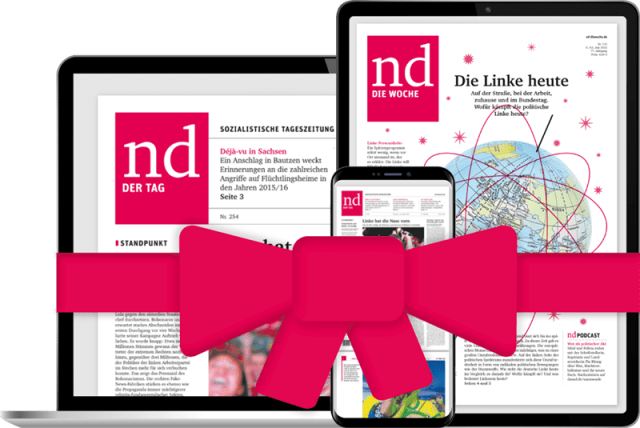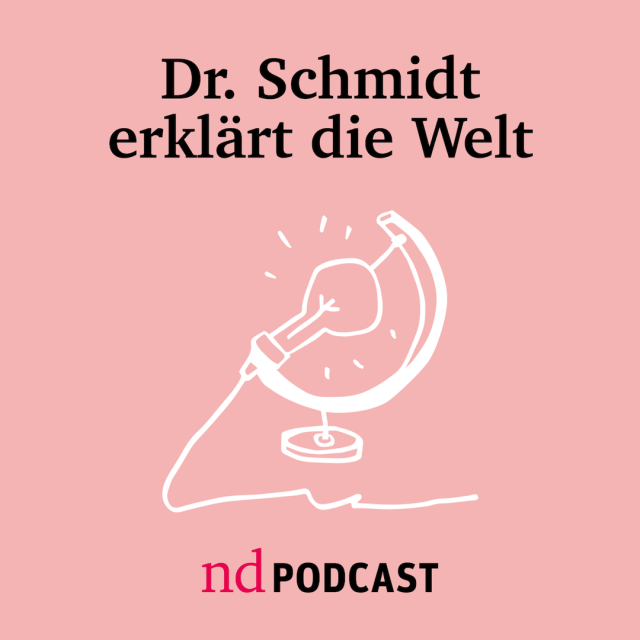Steffen, what do you think of osteopathy?
Hard to say. I know people who swear by it. Obviously there are similarities with manual therapy. What’s probably interesting about osteopathy is that they take the time to feel a lot and find things that you can’t find just by looking briefly, as can happen with an orthopedist.
I thought with manual therapy you press where it hurts and with osteopathy you press on the other end.
I am convinced that osteopathy works on certain things that have to do with the bone and muscle system and with tension, which people have a lot of in this age of stress and idiotic sitting postures. But the basic idea of osteopathy, which is already a good 140 years old, is…
Dr. Schmidt explains the world
Stephanie Schoell
As a polymath of the nd editorial team, the science journalist Dr. Steffen Schmidt has an answer to almost every question – and if he doesn’t, he answers another one. All episodes can be listened to on: dasnd.de/schmidt
… to have a holistic effect.
That’s not what I mean. Medicine is holistic anyway if it is practiced properly. But the inventor of osteopathy, Andrew Taylor Still, was apparently of the opinion that activating the body’s self-healing powers is enough for everything. There have even been studies on the effects of osteopathy on the Spanish flu. I have my doubts about that.
In any case, beyond muscles, nerves, veins and lymphs, there are no mysterious connections in the body?
I think that is very unlikely.
Traditional Chinese Medicine speaks of Qis. And from acupuncture I know that there are at least very sensitive points.
We have a dense network of nerve connections, lymph vessels and blood vessels. So there are countless connections that connect parts of the body to others, some biochemically and some electrically. In this respect, it may be that there are points that have an impact elsewhere. But you can’t cure kidney damage with it. What we understand today as traditional Chinese medicine is due to developments in China. The socialists, Sun Yat-sen and Co., considered traditional medicine to be completely outdated and pre-modern. And Mao’s communists maintained this thesis for a long time until they lost doctors in the course of their Cultural Revolution. A canon of procedures, as far as they were still known, was then created, which today represents traditional Chinese medicine. But that is probably only a fraction of what existed before.
There was a traditional medical connection with China in the GDRn?
Rather not. Until the Cultural Revolution, there was little enthusiasm for such procedures. And then relations with China suddenly deteriorated. I came to Berlin-Karlshorst in the fall of 1967, where the Chinese embassy was at the time. The blinds were down everywhere and some were splattered with paint. They wanted to use loudspeakers to convert the population to Mao’s teachings…
At least I associated homeopathy with alternative circles in West Germany.
Homeopathy has played a limited role. It was not banned, but was widely criticized as “paramedicine”. There were also alternative practitioners in the GDR with whom I have a divided relationship thanks to my mother, who once dragged me to someone who really had no idea.
My parents swore by a naturopath who diagnosed irises. But in the end it couldn’t heal anything.
This is a problem for medicine as a whole. There are a lot of illnesses where you can’t do anything despite a correct diagnosis, and certain signs of wear and tear no longer repair themselves as you get older. Otherwise, as a patient you always only know afterwards who can do something and how well.
nd.Christmas promotion

This will be a celebration: give away nd.Digital
Give away the Superfair digital campaign subscription for 59.40 euros (9.90 euros/month).
6 months of reading »nd« digitally in the nd.App and as nd.Epaper. The subscription ends automatically.
dasnd.de/weihnachtsaktion
judi bola judi bola judi bola online link sbobet
